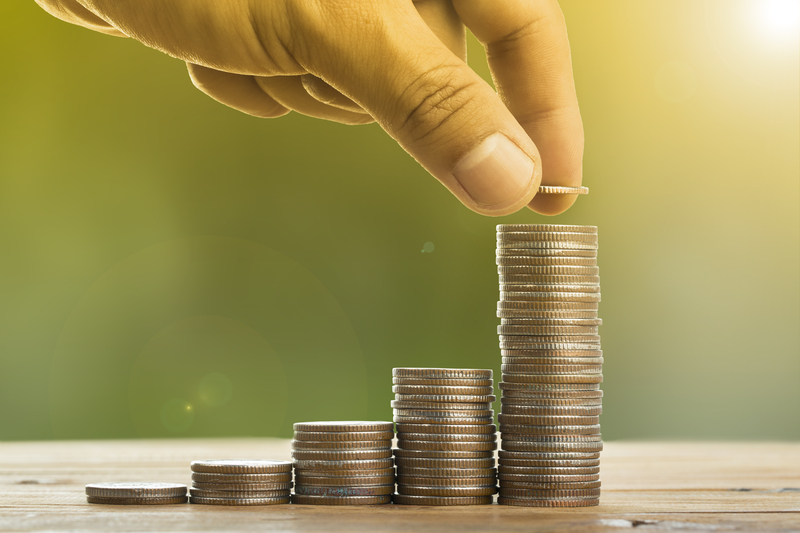Metal Recycling: A Journey towards Zero Waste
In today's rapidly advancing world, metal recycling plays a pivotal role in fostering a more sustainable environment. By understanding the processes and benefits associated with recycling metals, we can significantly contribute to the movement towards zero waste. In this comprehensive guide, join us as we delve into the transformative journey of metal recycling.
The Importance of Metal Recycling
Metals are essential resources found in countless applications and industries from construction to electronics. They are highly durable and can be recycled indefinitely without compromising quality. Consequently, metal recycling presents a significant potential to conserve natural resources, reduce energy consumption, and minimize environmental pollution.
- Conservation of Natural Resources: By recycling metals, we preserve finite natural resources. For instance, recycling one ton of steel saves 2,500 pounds of iron ore, 1,400 pounds of coal, and 120 pounds of limestone.
- Energy Efficiency: Recycling metals uses less energy compared to manufacturing new products. Producing aluminum from recycled materials uses only 5% of the energy required to produce it from raw bauxite.
- Reduction in Emissions: Recycling metals significantly reduces carbon emissions and other pollutants that are usually released during the extraction and processing of raw materials.

The Process of Metal Recycling
The metal recycling process involves several stages, each designed to efficiently transform scrap into valuable resources:
Collection and Sorting
Effective metal recycling begins with the collection of scrap metals from various sources, such as households, industries, and construction sites. The subsequent sorting process is crucial to ensure that metals are separated according to type and quality. Advanced sorting technologies, including magnetic separation and sensor-based systems, help achieve high levels of purity.
Processing and Shredding
Once sorted, scrap metals are processed and shredded into smaller pieces. Shredding facilitates easier melting and further purifying by increasing the surface area while eliminating contaminants like plastic and paint. Heavy-duty machines are instrumental in executing this step efficiently.
Melting and Purification
The shredded metals are then melted in large furnaces at various facilities. The temperature and methods differ based on the type of metal being recycled. During this stage, impurities can be removed using electrolysis and other refining techniques. Purified molten metals are then poured into molds to create standardized ingots, ready for resale or manufacturing.
Manufacturing New Products
The recycled metal ingots are then sold to manufacturers to be processed into new products. This step contributes to a closed-loop economy, where resources are reused rather than discarded, moving us closer to the goal of zero waste.
The Benefits of Metal Recycling
Numerous benefits arise from metal recycling, reinforcing its critical role in environmental protection and economic viability:
- Economic Benefits: The metal recycling industry plays a significant role in creating jobs, generating over a million jobs worldwide. Additionally, recycled materials are often less expensive for manufacturers, leading to cost savings for consumers.
- Environmental Protection: Recycling metals reduces the need for new mining activities, thus protecting natural landscapes and wildlife habitats. Furthermore, it helps in lowering water and air pollution.
- Sustainable Development: As the global demand for metals increases, recycling ensures a sustainable supply. It balances consumption with the planet's ability to regenerate resources.

Challenges in Metal Recycling
Despite its advantages, the metal recycling industry faces several challenges that need to be addressed to enhance its effectiveness:
- Complexity of Scrap Quality: The diverse range of alloys and composite materials complicates the recycling process as each type can require specific treatment.
- Efficient Collection Systems: Establishing efficient collection methods remains a challenge, particularly in regions lacking robust recycling infrastructure.
- Public Awareness: Increasing public awareness and consumer participation is imperative to improve recycling rates.
The Future of Metal Recycling: A Step towards Zero Waste
Advancements in technology and increasing environmental awareness pave the way for a more effective and comprehensive recycling process. By investing in research and development, embracing innovative sorting technologies, and fostering community engagement, we can address existing challenges and propel the industry towards the zero-waste target.
Emerging Innovations in Metal Recycling
New methods such as artificial intelligence (AI) for material recognition and automated robots for sorting can greatly enhance the efficiency and accuracy of the recycling process. Further, developing alternative methods for metal extraction, such as bioleaching, offers promise in processing metal waste more sustainably.
Community Involvement and Education
Raising public awareness and promoting educational initiatives about the importance of metal recycling can empower individuals and communities to actively participate in sustainable practices. Through joint efforts, we can build a collective mindset geared towards zero waste.
In conclusion, the journey toward zero waste is not solely a governmental or industrial responsibility--it involves each of us. By understanding the significant impact and opportunities presented by metal recycling, we can make informed decisions and take active measures in our daily lives. Let us embrace the challenge, champion the cause, and work tirelessly towards a sustainable and prosperous future for generations to come.